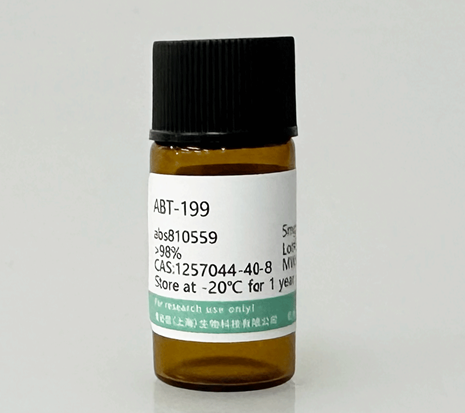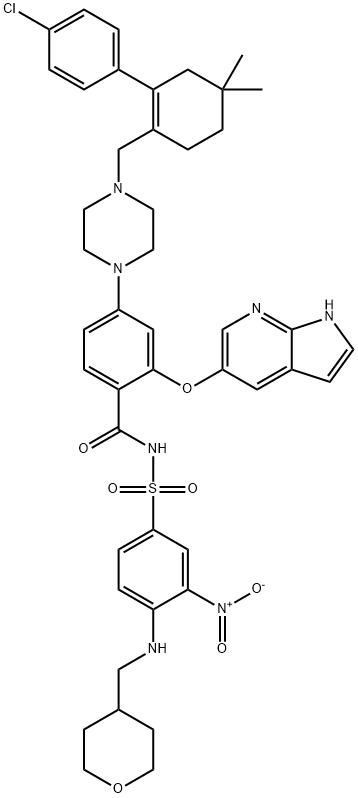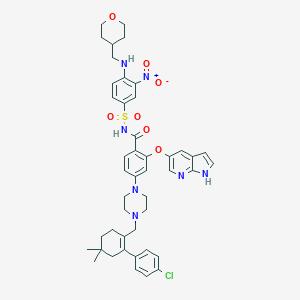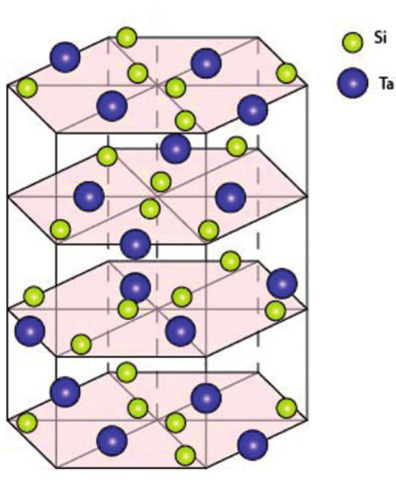Mechanisms of resistance to ABT-199 in leukemia and lymphoma cell lines
What is ABT-199?
ABT-199 (Venetoclax) is a potent, orally bioavailable, selective inhibitor of BCL-2. It is approved for the treatment of first-line and relapsed/refractory chronic lymphocytic leukaemia (CLL) and acute myeloid leukaemia (AML). Venetoclax is part of a class of antineoplastic drugs called BH3 mimetics. In general, BH3 mimetics inhibit anti-apoptotic proteins such as BCL-2, BCL-w and BCL-XL. vinatocet specifically replicates the action of BCL-2 physiological antagonists and binds directly to the protein. This restores programmed cell death by displacing pro-apoptotic proteins (e.g., BIM) and cysteine asparaginase activation.

Mechanisms of resistance to ABT-199 in leukemia and lymphoma cell lines
ABT-199 is a first-in-class orally bioavailable BCL-2 selective inhibitor that is currently being testing in clinical trials. Clinical activity has been reported in chronic lymphocytic leukemia and NHL patients treated with ABT-199 as a monotherapy. As with any targeted cancer therapy, it is important to identify the potential mechanisms of resistance, not only to inform patient selection but also to develop strategies to circumvent resistance as it emerges. In this study, we generated resistant variants from ABT-199-sensitive cell lines of different leukemia and lymphoma subtypes (two diffuse large B-cell lymphomas, two follicular lymphomas, one leukemia line, and two mantle cell lymphomas) by increasing exposure to ABT-199 in a stepwise manner over time. Compared to the parental cell lines, the variants were 10 to >100-fold less sensitive to ABT-199. The ABT-199-resistant variants were also resistant to ABT-263 (navitoclax), a BCL-2/BCL-XL inhibitor, as well as to other standard-of-care cancer agents. Gene and protein expression analyses revealed multiple alterations in the expression of BCL-2 family members in the resistant variants; however, not all of the changes were universal. Alterations included changes in the levels of the target protein BCL-2, reduction of the pro-apoptotic proteins BAX, BIM or NOXA, or increases in the anti-apoptotic proteins BCL-XL or MCL-1. In some but not all cases, the changes to gene and protein expression levels were accompanied by changes in DNA copy number. To determine whether changes in the anti-apoptotic BCL-2 family members were causally related to ABT-199 resistance, we tested ABT-199 in combination with BCL-XL and MCL-1 selective inhibitors. Co-treating with ABT-199 and either a BCL-XL or MCL-1 selective compound was synergistic in killing the ABT-199-resistant variants, suggesting these proteins can both contribute directly to ABT-199 resistance. Under appropriate selection pressure, intrinsic traits that mitigate the effects of anticancer drugs can lead to the enrichment of a resistant tumor population. In ABT-199-resistant RS4;11 cells we observed a complete and permanent loss of BAX, one of the ultimate effectors of mitochondrial mediated apoptosis. FACS analysis revealed that there was a pre-existing population of RS4;11 cells lacking this protein. It is likely that these cells had a selective advantage over those expressing BAX when treated with ABT-199.
Overall our data indicate that there are distinct mechanisms of resistance to ABT-199, either innate or acquired, which will have important implications for both patient selection and developing strategies to overcome resistance.
References:
[1] S. TAHIR. Abstract B30: Mechanisms of resistance to ABT-199 in leukemia and lymphoma cell lines[J]. Clinical Cancer Research, 2015. DOI:10.1158/1557-3265.PMS14-B30.
You may like
Related articles And Qustion
See also
Lastest Price from ABT-199 manufacturers

US $0.00-0.00/kg2025-08-22
- CAS:
- Min. Order:
- 1kg
- Purity:
- 99%
- Supply Ability:
- 1

US $0.00/kg2025-06-07
- CAS:
- 1257044-40-8
- Min. Order:
- 1kg
- Purity:
- 98%
- Supply Ability:
- 1000kg





